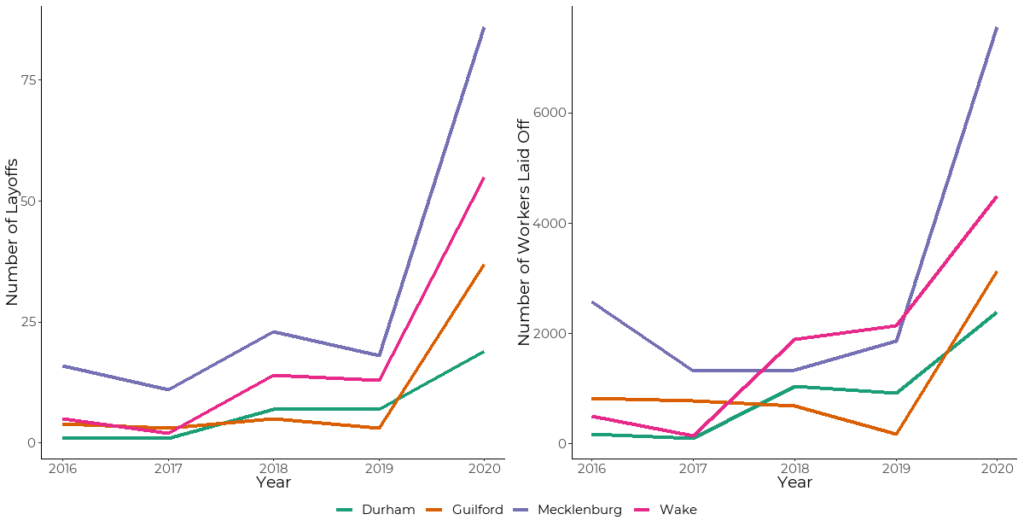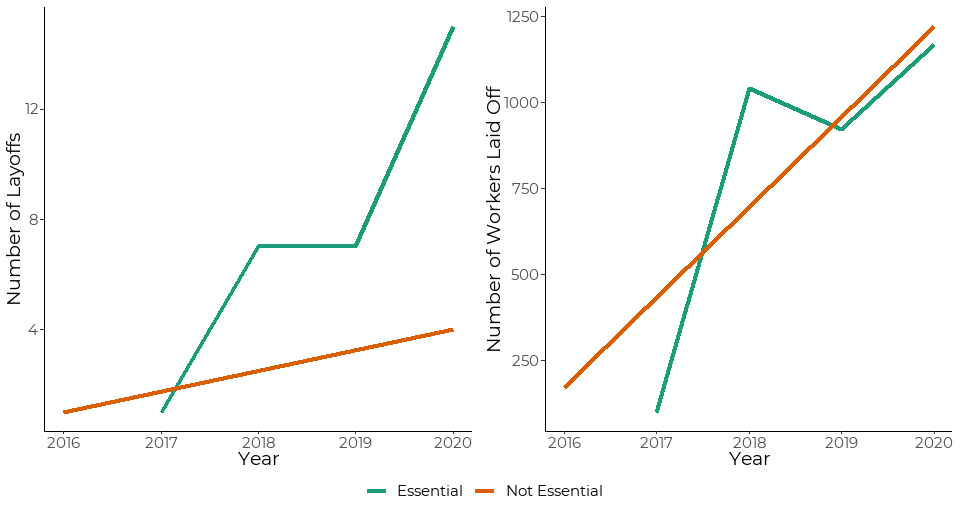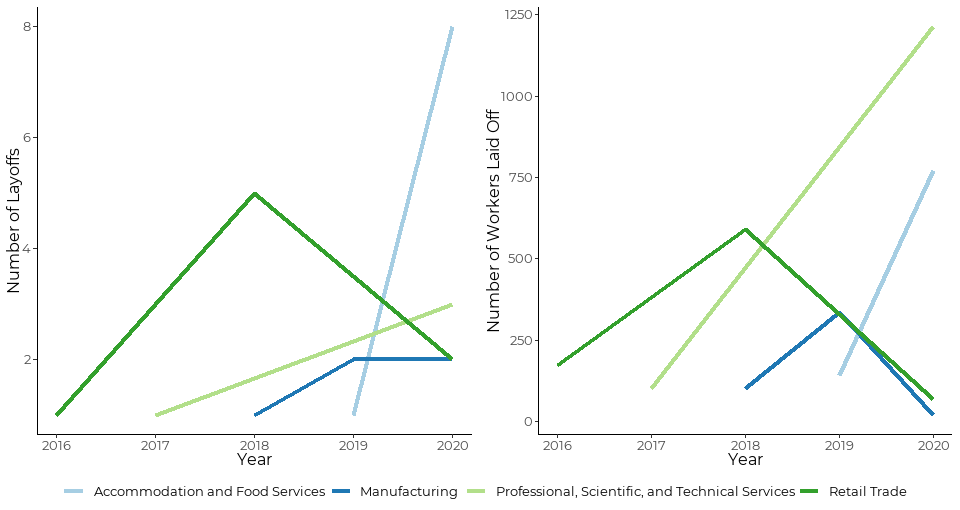Trends in Durham, Guilford, Mecklenburg, and Wake Counties
We looked at trends in layoffs in four NC counties–Durham, Guilford, Mecklenburg, and Wake. Since we’re in Durham, we were specifically interested in what is happening here. We chose three additional counties that also had large urban and similar industrial characteristics. All four counties saw steep increases in layoff events and the number of workers who lost their jobs during the pandemic, relative to previous years.
Mecklenburg County had the greatest increase in both layoff events and number of workers laid off, with only 25 events and under 2,000 workers laid off in 2018 and nearly 80 layoffs and 7,000 workers laid off in 2020. Durham and Wake Counties had increases in layoffs between 2016 and 2019, but the sharpest increase in 2020, as the impacts of COVID-19 set in.

Durham’s Industries
In Durham County, we looked at which industries were affected most. In response to COVID-19, the Cybersecurity & Infrastructure Security Agency (CISA) released new guidance on what industries are considered part of the US’s essential infrastructure.
Some Durham workplaces deemed “essential” in the new guidance include grocery stores, hotels, and restaurants, while some deemed “non-essential” include retail stores and scientific research centers, like RTI. In Durham County, the pandemic led to a doubling of layoff events in essential industries but only a slight increase in non-essential industry layoffs. When counting the number of workers losing their jobs, however, there were similar increases in essential and non-essential sectors.

Next, we focused on trends in major sectors where much of Durham’s workforce is employed. Durham’s Accommodation and Food Services sector, which had only one layoff event between 2016 and 2019, experienced eight layoff events in 2020, which affected over 750 workers. The largest of these layoffs occurred at the Sheraton Imperial Hotel.
The Professional, Scientific, and Technical Services sector had three layoffs in 2020, impacting over 1,200 workers. The two largest layoffs in this sector were at RTI.

The retail and manufacturing sectors were already showing vulnerabilities prior to the pandemic, with layoff peaks in 2018 and 2019, respectively. The peak in retail is related to the Durham Kroger closures, and the manufacturing layoffs were largely in pharmaceutical manufacturing, like Merck and GlaxoSmithKline.
Key Take-Aways
- Durham County had increases in layoffs in 2020 relative to previous years, but Mecklenburg County had the most extreme increases.
- Essential industries had bigger increases in layoffs in 2020 than non-essential industries, but increases in layoffs affected both essential and non-essential workers fairly equally in Durham County.
- Durham County accommodation and food services businesses had the greatest increases in layoffs, but the greatest increase in workers laid off happened to workers in scientific and technical services jobs.

Leave a Reply